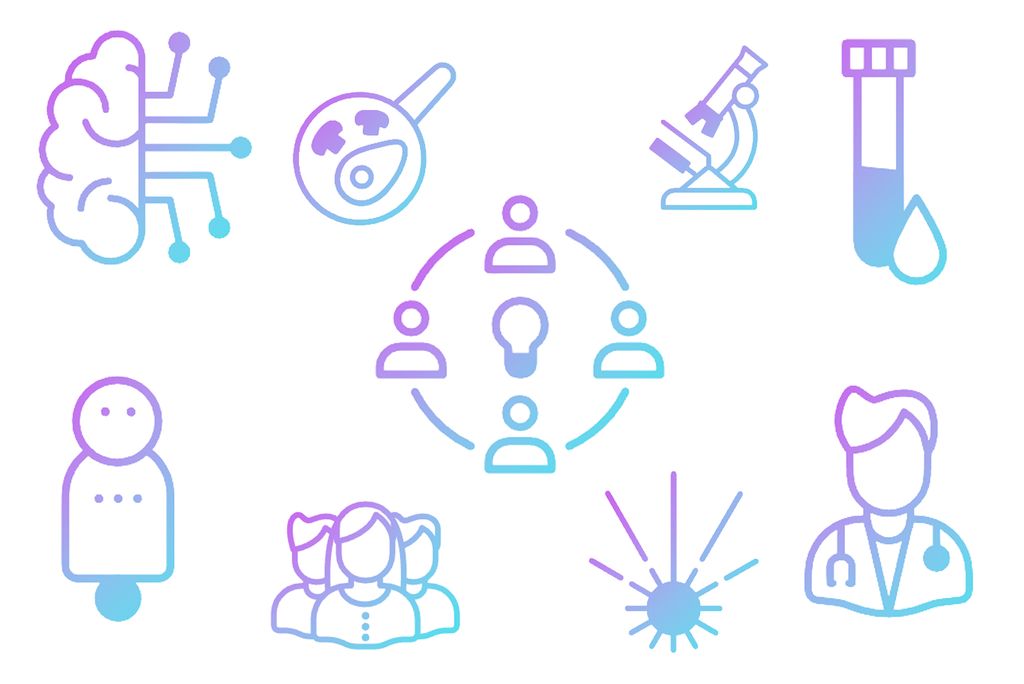How to Help Someone After a Cancer Diagnosis
Video by Envato/YuriArcursPeopleimages, illustrations by Lordicon
How to Help Someone After a Cancer Diagnosis
What to say, and not say, when a friend, child, or family member receives the difficult news
The doctor’s call came as I gassed up the car at a convenience store: I had prostate cancer. They caught it early, mercifully, and I’d been steeled for the news ever since doctors noticed my elevated PSA (a marker of possible cancer) and had me biopsied. Still, I felt a chill just days later, when beloved Boston University medicine professor David Seldin died of the disease at 58, two years my senior. I was luckier; a prostatectomy saved my life.
During the three months between that call and surgery, and then the three months of recuperation and waiting for a clean PSA check, friends bolstered my spirits with words of support and offers of help that I was free to accept, or politely decline.
But I’ve been on the other side, too, as someone hearing about another’s diagnosis and wondering what to say. The proverbial C-word makes people shudder. (I tried to nip any anxiety that I was on my deathbed by telling friends up-front that my case had been caught early.) So, how can friends and family empathetically support someone who gets that doctor’s phone call?
For suggestions, The Brink turned to two experts on supporting friends and loved ones through a cancer diagnosis. Barbara L. Jones, dean of BU’s School of Social Work, is an expert on palliative care and oncology social work. A longtime social work educator, she’s also an advisory board member with the American Cancer Society’s Center for Diversity in Cancer Research Training and spent 15 years as a social worker. Heather Peach (Wheelock’96), a child life specialist at Mass General Brigham, works with families of children with cancer, helping them explain the diagnosis to their children and siblings with developmentally appropriate language and teaching materials. With 28 years as a child life specialist, she is a clinical educator with BU Wheelock College of Education & Human Development’s child life and family-centered care master’s program. Here is their advice for supporting cancer patients in your circle.

Don’t tell a person you know what they’re going through.
“It isn’t terribly helpful to say, ‘Yes, 25 years ago, I went through that. So I know exactly what you’re feeling,’” says Jones. “Even if we have the same diagnosis, we don’t know exactly what somebody feels.” Instead, she recommends expressing concern without invalidating. For example: “‘I can’t imagine what that is like for you, tell me more.’”

Do calibrate your approach, whether the patient is an adult…
“Sometimes, folks want to talk about their cancer diagnosis,” Jones says. “Sometimes they want to talk about other things.” Ask.

…or a child.
“It’s incredibly important to understand the developmental level and personality of the child or adolescent,” says Peach, and the family’s privacy desires (some publicize their story, others don’t). Peach offers six tips with parents and caregivers in mind:
- Some children may not communicate distress verbally. Look out for behavioral signals that a child is worried, such as trouble sleeping or eating.
- “Children may think that they did something bad or wrong” that caused their cancer. Reassure them otherwise.
- Friends or classmates may think that they can “catch” cancer from their sick friend. Reassure them on this, as well.
- Check with your child’s medical team on resources, written and online, about their diagnosis, rather than rely on Google. “Most hospitals have child life specialists who can help your child understand their diagnosis and build coping plans.”
- “Encourage your children to share their feelings” about their diagnosis. Sharing yours will help.
- “It’s important to maintain routines and set limits” regarding things like chores and bedtime. “This helps children to feel safe and in control.”

Don’t run away, either by refusing to address the subject, even if it’s unpleasant for you, or by neglecting to follow up.
“In the beginning, there’s a lot of shock going on” when a patient is diagnosed, Jones says. If you haven’t heard from them after a couple of months, circle back to see if they need to talk or would appreciate your company on a walk, a Red Sox game, whatever. Bear in mind that feelings are a roller coaster; how someone feels now might change. Make inquiries “temporal,” Jones suggests: “‘How are you feeling today?’ Or ‘How are you feeling right now?’”

Be honest with kids.
Children “can often sense when something is wrong,” Peach says, especially if people act differently around them because of their illness. “If they feel like something is being kept from them, they may feel afraid, confused, and might use their imagination as to what may be going on. Some children may overhear conversations without a parent’s knowledge and be even more worried, confused, or afraid.”
Openness and honesty are critical, as is using developmentally appropriate language, she says. “What you share with a preschooler will be very different than what you share with a teen.” Peach recommends talking about physical changes they may see from their illness or treatment and about the logistics of appointments. “Will the child patient be staying overnight in the hospital for surgery? Who will pick [siblings] up from school or give them dinner? Will the child have hair loss or need a special line, like a port-a-cath, for their medication? I think that it is important to share information with the child, siblings, etc., so that they can understand and be prepared.”

Do be specific in offering help.
This is especially important for patients reticent about talking about their illness, who may reject a general, anything I can do?, says Jones. Instead, she says, try saying, “‘I love dogs, I’d love to walk your dog, if you’re ever tired and you want me to do that.’ Or ‘I’m at the grocery store right now, can I pick you up something?’”
And because parents worry about their kids, Jones says that can be another avenue of support: You might suggest, “‘We’re going to go out for ice cream tonight—can I take Johnny with me?’ You’re a source of support for the child, but you’re also giving the parents some relief.”

Don’t try to “fix” it.
Trying to perk someone’s spirits up is not always helpful. Jones’ rule of thumb is that “any sentence that starts with ‘at least’ is probably the wrong sentence: ‘At least you didn’t have [fill in the blank].’ ‘At least it didn’t happen on your birthday.’ That is very minimizing.”
If they’re unhappy, she says, you don’t have to give them a sunny-side up. “You just have to be willing to sit with it. That is actually the hard work.”

Do remember that patients have different supports, and different impediments, in getting care for their illness.
Comments blaming the person, like buck up or you’ll be OK or maybe if you’d taken better care of yourself, do not help anyone—and, Jones adds, don’t take into account the different challenges people may be facing.
“If you’re a working parent,” says Jones, “and you have to take two buses to get to your cancer treatment, you may or may not go to your appointments, because you have to survive and you have to take care of your kids. Oncology social workers are licensed providers who can provide both counseling and support, as well as access to concrete services to facilitate treatment for patients.”
Asking someone where they typically go for emotional support might lead them to open up about whether they face obstacles, or if they have spiritual beliefs or other supports. “Then I might also ask, ‘Are they there for you now?’” Jones says. “Because they might have lost those supports. That’s why cancer support communities can be so important—because you’re with like-minded people.”
This Series
Also in
Cancer Research at Boston University
-
November 14, 2025
“Science Saved My Life”: Cancer Survivor and BU Alum Joy Huber on Why Research Matters
-
November 14, 2025
With New Technology and Innovative Treatments, BU Cancer Research Is Saving Lives
-
November 14, 2025
Living with Cancer: How BU Programs Help Patients, Students Stay Resilient in the Face of a Life-Changing Diagnosis

